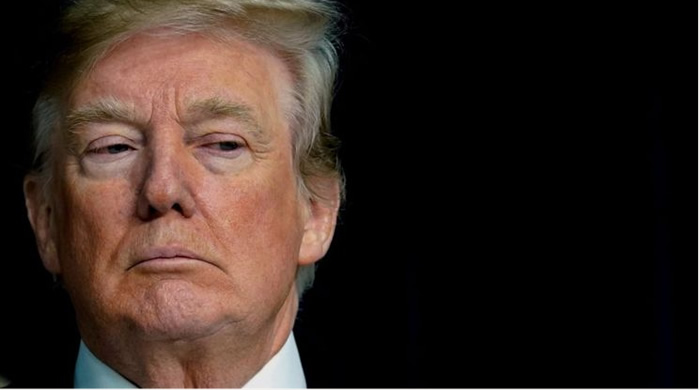
Former President Donald Trump appeared before a federal magistrate in Miami on Tuesday to plead not guilty to charges that he illegally retained dozens of classified national security documents after he left the White House and obstructed government efforts to retrieve them.
Trump became the first former U.S. president to face a federal indictment when a grand jury in Miami last week indicted him on 37 counts in connection with his alleged mishandling of classified documents.
The indictment, which was unsealed on June 9, charges Trump with 31 counts of “willful retention” of national defense information, each count representing a different document that Trump allegedly took from the White House to Mar-a-Lago and refused to return even after being subpoenaed.
The indictment also alleges that Trump showed classified documents on two occasions to others and that he conspired with an aide, Walt Nauta, to keep the documents out of the hands of investigators.
“We most certainly enter a plea of not guilty,” Todd Blanche, one of Trump’s lawyers, told magistrate judge Jonathan Goodman.
Trump was released on his own recognizance and ordered not to communicate with Nauta and witnesses about the facts of the case. Nauta, a former White House valet and Trump assistant, pleaded not guilty to six counts of obstructing the investigation and lying to investigators.
Each count of “willful retention” of defense information carries a maximum penalty of 10 years in prison. The obstruction charges are punishable by up to 20 years.
Trump’s arraignment took place under heavy security at a federal courthouse in downtown Miami. Hundreds of the former president’s supporters converged outside the building. Authorities had feared the rally might turn violent, but the crowd remained peaceful. The court proceedings lasted less than an hour and went without incident.
The case against Trump is seen as the most serious legal threat facing the former president since he left the White House in 2021. His former attorney general, William Barr, recently called the charges “very, very damning.”
The documents Trump is accused of taking from the White House were among the government’s most closely kept secrets. According to the 49-page indictment, they contained information about U.S. nuclear programs, the potential vulnerability of the U.S. and its allies to an attack and plans for a possible response. Their disclosure, the indictment says, could endanger U.S. national security.
Trump has claimed that he had a “standing order” to declassify any documents that he took from the Oval Office to his residence in the White House.
But the indictment alleges that Trump was aware of laws governing classified national security information and willfully flouted them.
In one case, in July 2021, Trump allegedly showed a document about a “plan of attack” to a group of visitors at his New Jersey golf club, telling them it was “highly confidential” and “secret” and that he could no longer declassify it.
In another instance in September 2021, Trump showed a classified map to a representative of his political action committee, telling him that he “should not be showing it to [him] and that [he] should not get too close,” according to the indictment.
Under U.S. law, all presidential records must be handed over to the National Archives when a president’s term ends.
While Trump handed over dozens of documents to the National Archives, the indictment says the former president clung on to more and impeded efforts to retrieve them.
After he received a subpoena for the documents in May 2022, Trump allegedly instructed one of his lawyers to declare to investigators that he did not have the documents in question, according to the indictment.
When the lawyer suggested a search of Mar-a-Lago, Trump allegedly instructed Nauta to move the documents from a storage room to his residence to hide them from the lawyer, according to the indictment.
Trump, now the leading Republican presidential candidate, has reacted defiantly to the indictment, calling it a “vicious persecution” by “the Biden administration’s weaponized department of injustice” and vowing to continue campaigning even if he is convicted.
“I’ll never leave,” Trump told Politico in an interview Saturday.
The case has been assigned to Judge Aileen Cannon, a Trump appointee who drew fire for her handling of a lawsuit Trump brought to challenge the FBI’s search of Mar-a-Lago last August.
Cannon granted Trump’s request for a special master to review the seized documents and temporarily blocked investigators from using the material in their probe.
But an appeals court overturned her ruling, saying she did not have the authority to rule as she did. It remains unclear whether Cannon will preside over the trial.
The start date of the trial also remains uncertain. Some experts speculate that it could take months to begin and might even be postponed until after the 2024 election.
After his arraignment, Trump left for New Jersey, where he was expected to deliver remarks and host a fundraiser at his golf club.
Source: voanews.com























